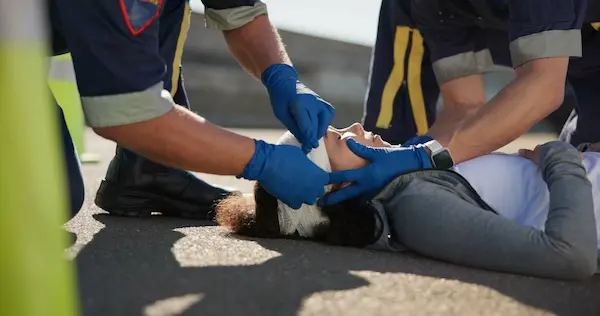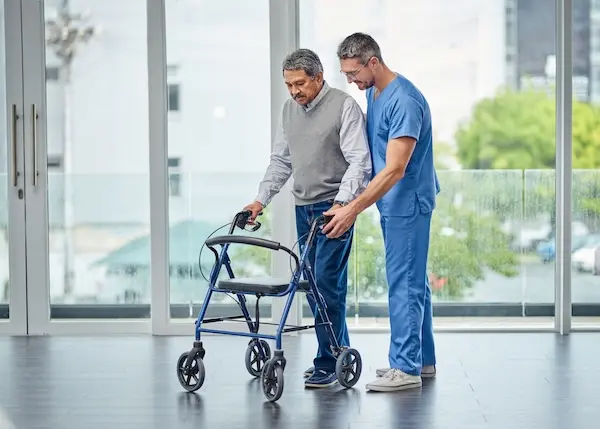Understanding Common Car Injuries After a Vehicle Crash
A Charlotte car accident lawyer often sees common car injuries that range from whiplash to spinal cord trauma. These common car injuries can happen in both minor and major collisions. Each year, thousands of accident victims experience car accident injuries ranging from mild discomfort to severe injuries that require long-term medical treatment. Even a low-speed rear end crash can lead to soft tissue injuries, neck injuries, or back injuries that may occur hours or days later. Recognizing the types of injuries that may happen—and knowing how to respond—is essential to protecting your health after an accident injury.
The Most Common Car Injuries You Need to Know
After a vehicle crash, common car injuries can affect nearly every part of the body, from surface bruises to life-altering trauma. Understanding these types of injuries, how they happen, and why prompt medical attention is crucial can make a significant difference in recovery outcomes for accident victims.
Soft Tissue Injuries: The Most Common Car Injuries After a Crash
Among common car injuries, soft tissue damage ranks as the most frequent and often underestimated. Soft tissue injuries involve the muscles, ligaments, and tendons that provide structure and movement for the body. In the chaos of a vehicle accident, sudden deceleration or a sharp impact can stretch or tear these tissues.
The classic example is whiplash, which occurs when the head snaps backward and forward—most often in rear end collisions. While whiplash is a common car injury, other soft tissue damage can occur in the shoulders, knees, or lower back. Symptoms often include swelling, stiffness, reduced range of motion, and persistent pain. Without timely medical treatment, these injuries may result in long lasting mobility problems that can interfere with daily life and work.
Head Injuries and Traumatic Brain Injuries
Head injuries vary widely, from mild concussions to severe traumatic brain damage. In many vehicle crashes, the steering wheel, dashboard, airbags, or even side windows can cause a brain injury. Concussions may lead to headaches, dizziness, or temporary confusion, while more serious injuries—such as intracranial bleeding—can cause blurred vision, slurred speech, or memory loss.
Traumatic brain injuries are particularly concerning because they can have long term cognitive and neurological effects, impacting speech, coordination, and emotional regulation. Even if you feel fine immediately after a collision, head trauma can worsen over hours or days. For this reason, medical attention after any suspected head injury is non-negotiable.
Spinal Cord Injuries and Back Injuries
Spinal cord injuries are among the most severe injuries that can occur in traffic accidents. Damage to the spinal cord can lead to partial or complete paralysis, affecting sensation and movement below the injury site. In addition, back injuries—including herniated discs, vertebral fractures, and chronic nerve compression—are common injuries after a crash.
These injuries are often caused by the sudden, violent forces of a collision that twist or compress the spine. Warning signs include numbness, tingling, weakness, or loss of bladder control. Any change in mobility or sensation following an impact should be treated as a medical emergency, with immediate medical treatment to prevent permanent damage.
Broken Bones and Broken Ribs
Broken bones are a common consequence of the sheer force generated during a vehicle accident. Arms, legs, wrists, and ankles are especially vulnerable, particularly when a person instinctively braces for impact. Broken ribs are especially dangerous because they can puncture lungs or damage internal organs, leading to internal bleeding and respiratory distress.
Some fractures are obvious due to visible deformity, swelling, and intense pain, while others, like hairline fractures, may only be detected through imaging. Regardless of severity, fractures require prompt medical care to ensure proper alignment and healing, and in some cases surgical intervention.
Internal Injuries
Not all injuries sustained in a car accident are visible. Internal injuries can involve damage to vital organs such as the liver, spleen, or kidneys, often accompanied by internal bleeding. These conditions are typically the result of blunt force trauma from a collision—for example, the body striking the seatbelt, steering column, or dashboard.
The danger lies in their delayed presentation. Symptoms may not occur immediately, and by the time they appear, the situation may already be life-threatening. Warning signs include abdominal pain, dizziness, and rapid heart rate. Because of the potential for rapid decline, suspected internal injuries require immediate medical attention and often emergency surgery.
Psychological Injuries After a Car Accident
When discussing common car injuries, it’s important to remember that not all harm is visible. After a vehicle crash, many accident victims experience emotional and psychological effects that can be just as debilitating as physical wounds. One of the most recognized conditions is post traumatic stress disorder (PTSD), which may develop after experiencing or witnessing a severe collision.
PTSD in accident victims often involves recurring flashbacks of the crash, intense anxiety during driving, or heightened fear in traffic situations. Emotional distress may also include depression, sleep disturbances, irritability, and difficulty concentrating—issues that can significantly disrupt daily life and long term recovery. These symptoms can arise even when physical injuries seem minor, showing that the emotional impact of a vehicle accident is not always tied to the severity of injuries sustained.
Psychological trauma may occur alongside neck injuries, back injuries, or soft tissue injuries, and the stress of ongoing medical treatment can amplify these effects. This creates a cycle in which mental and physical recovery are intertwined—when one suffers, the other may also decline.
Just as you would seek urgent medical attention for broken bones, internal injuries, or head injuries, it’s critical to pursue mental health treatment for emotional harm. Therapy, counseling, and support groups can help accident victims process trauma, rebuild confidence in driving, and reduce the risk of long lasting emotional damage. By addressing both the body and mind, you can significantly improve your overall recovery after a car accident.
Causes of Common Car Injuries
Many factors contribute to common car injuries:
- High-speed collision forces
- Distracted or impaired driving
- Poor road conditions leading to crashes
- Traffic congestion increasing rear end risks
When combined with human error, these conditions may cause serious injuries that change lives.
Steps to Take if You’re Injured in a Car Accident
Seek Immediate Medical Attention
If you’re injured in a car accident, make sure you seek medical attention right away. Even injuries that seem minor may worsen without prompt treatment.
Follow Recommended Medical Treatment
Your recovery depends on following your medical care plan. This can include surgery for broken bones, physical therapy for soft tissue injuries, and rehabilitation for spinal cord injuries or head injuries.
Monitor for Delayed Symptoms
Some injuries in car accidents don’t appear right away. If new symptoms occur—such as dizziness, severe pain, or changes in vision—return for further medical attention immediately.
Recovering From Common Car Injuries: What You Need to Know
Physical Recovery
Depending on the types of injuries, recovery may involve therapy, medication, or surgery. For back injuries, mobility work and pain management are vital. For broken ribs, breathing exercises prevent complications.
Emotional and Mental Recovery
Recovering from post traumatic stress disorder or accident-related anxiety requires professional support. Group counseling and therapy sessions can help restore emotional stability.
Preventing Long Term Damage
Early and consistent medical treatment for injuries sustained in a vehicle accident is the best way to avoid long lasting effects.
Preventing Common Car Injuries on Charlotte Roads
- Always wear a seatbelt and adjust headrests to reduce neck injuries.
- Keep a safe distance to avoid rear end collisions.
- Maintain your car to prevent mechanical failures.
- Drive defensively to lower your risk of becoming an accident victim.
Your Recovery From Common Car Injuries Starts with 1Charlotte
Common car injuries can range from minor soft tissue strains to severe injuries like spinal cord injuries and traumatic brain damage. Whether you’re facing broken bones, internal injuries, or neck injuries, getting prompt medical care is essential to protecting your health and future. Emotional recovery is just as important as physical healing, and addressing both can greatly improve your chances of a full recovery after a vehicle crash.
At 1Charlotte, we understand how overwhelming life can feel after being injured in a car accident. Our team connects you with trusted Charlotte car accident lawyers who can protect your rights, guide you through every step, and fight for the compensation you deserve.
👉 Contact 1Charlotte today (704) 706-2689 to get expert help, personalized support, and a clear path forward after your accident injury. Your recovery starts here.








